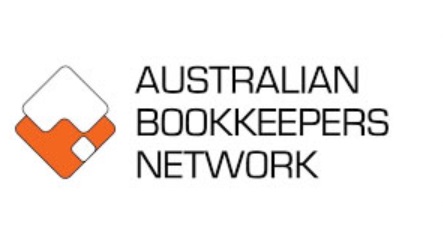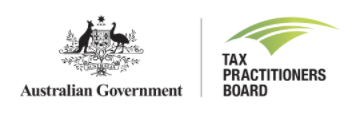The roots of the accounting industry in Australia can be traced back to the establishment of the penal colony of New South Wales in 1788 by Captain Arthur Phillip. At that time, the colony faced the challenges of limited resources, relying heavily on unskilled convict labour, basic tools, and a mix of trees, vines, seeds, and stock acquired from the Cape Colony (now South Africa).
Early trade in the colony relied on barter and various coins, including English pennies and shillings, Dutch guilders, Indian rupees, and Spanish dollars brought in by merchant ships. However, a shortage of reliable currency shifted trade towards commodities like cattle and rum, as well as personal promissory notes, as alternative forms of payment. Unfortunately, for many settlers who received payment in rum, the temptation to consume their earnings led to poverty and the forfeiture of their land.
As the colony experienced an influx of free settlers and witnessed increased agricultural development, the demand for a stable currency to facilitate trade became increasingly urgent, marking a crucial turning point in the early development of accounting practices in Australia.
John Macarthur, arriving in Sydney in 1790, emerges as a remarkable figure in Australia's early history, distinguished not only for his role in revolutionising the wool industry through the introduction of merino sheep but also for his exceptional proficiency in accounting. Beyond his agricultural achievements, Macarthur's accounting skills played a pivotal role in shaping the economic landscape of the growing colony. His proficiency in preparing financial statements provided him with unique insights into the trends and growth of commerce, granting him a strategic advantage in making informed decisions.
In an era where formal banking institutions were absent, Macarthur, along with other influential figures, assumed a central role in financial management, wielding considerable influence in guiding economic activities. His financial acumen not only facilitated the encouragement of farming and economic enterprise but also contributed to the strategic development of the colony in the absence of traditional banking structures.

In 1805, a school in Sydney was established, providing students with education in reading, writing, arithmetic, and bookkeeping, specifically following the "Italian model", which involved the use of double-entry bookkeeping.
Two prominent figures in the accounting world of Australia are Sir Alexander Fitzgerald and Mary Addison Hamilton.
Sir Alexander Fitzgerald, regarded as "the outstanding figure of his time in Australian accounting", was a pioneer in accounting education. Born in 1890, he commenced his career as a clerk for a hardware merchant. However, driven by a passion for accounting, he pursued studies in the field and steadily advanced in his professional trajectory.
In 1925, when the University of Melbourne established a commerce degree, Fitzgerald joined as a foundation student. Concurrently, he secured a position as an assistant lecturer in accounting. Marking the beginning of his influential contributions to both the academic and professional realms of accounting.
In 1915, Mary Addison Hamilton achieved a significant milestone by becoming the first woman appointed to a professional accounting body within the Commonwealth of Australia. The Institute of Accountants and Auditors of Western Australia, a precursor to CPA Australia, welcomed her as a member, breaking barriers during an era when women faced restrictions in joining professional associations. As an exceptional student, Hamilton excelled in the Fremantle Chamber of Commerce examinations and pursued her studies in accountancy through night school.
Despite societal challenges that limited women's entry into various professions, Hamilton, who worked as a clerk for the WA Education Department, volunteered her accountancy expertise as a treasurer or auditor for numerous not-for-profit organizations, including the Royal Lifesaving Society and Catholic Women’s League.
The legacies of Sir Alexander Fitzgerald and Mary Addison Hamilton continue to resonate in Australian accounting history, serving as inspirations for aspiring bookkeepers and accountants. Their pioneering spirit and commitment to excellence have not only shaped the educational landscape of bookkeeping and accounting but also paved the way for inclusivity and diversity within the profession. As trailblazers who transcended societal barriers, they exemplify the transformative power of passion, perseverance, and progressive thinking.
Today, their contributions stand as a testament to the enduring importance of education, equality, and ethical leadership in the field of bookkeeping and accounting.
Joining a professional body like the Institute of Certified Bookkeepers (ICB) or Australian Bookkeepers Network (ABN) can significantly enhance your career as a bookkeeper in Australia by providing recognition, ongoing education, networking opportunities, and a solid foundation for professional growth.
Let's look at these professional bodies in a little more detail.
ICB - Institute of Certified Bookkeepers
Bookkeepers helping Bookkeepers helping Business

The Institute of Certified Bookkeepers (ICB) is a professional organisation dedicated to bookkeepers and accounting professionals. Founded in the UK in 1996, it has since expanded globally, with branches in various countries, including Australia.
The ICB offers certification programs and training courses for individuals seeking to advance their skills in bookkeeping and accounting. Members of the ICB adhere to a code of conduct and ethical standards, ensuring integrity and professionalism in their practice.
The organisation provides support, resources, and networking opportunities to its members, promoting worldwide excellence and innovation in bookkeeping practices.
For more information, visit the ICB website.
Australian Bookkeepers Network (ABN)

The Australian Bookkeepers Network (ABN) is a professional association dedicated to supporting bookkeepers across Australia. Established in 2001, ABN provides a range of resources, education, and networking opportunities to help bookkeepers develop their skills, grow their businesses, and stay informed about industry trends and regulations.
ABN offers membership options that include access to training courses, webinars, tools, and support services tailored to the needs of bookkeepers. The organisation plays a vital role in promoting professionalism, excellence, and best practices within the bookkeeping profession in Australia.
For more information, visit the ABN website.
Registered BAS Agents

The Tax Practitioners Board (TPB) is an Australian government agency responsible for regulating tax practitioners, including bookkeepers who provide Business Activity Statement (BAS) services.
Registered BAS agents must meet education, experience, and ongoing professional development requirements set by the TPB. They adhere to a strict code of professional conduct and ethical standards to ensure compliance with tax laws and maintain the tax system's integrity.
The TPB's oversight aims to enhance the quality and reliability of financial information reported to the Australian Taxation Office (ATO) and other government agencies, fostering public confidence in the professionalism of tax practitioners.
For more information, visit the TPB website.
Accounting is the language of businessWarren Buffett

The traditional manual accounting system, characterised by a single general journal and ledger, has persisted through the years and is still employed by some small businesses today.
Over time, manual systems have evolved to incorporate multiple journals (e.g., sales, purchases, cash receipts, and cash disbursements) for increased efficiency. Adjusting, closing entries, and miscellaneous transactions are typically recorded in the general journal. Additionally, these systems often integrate subsidiary ledgers for accounts receivable and accounts payable, providing detailed insights into customer and supplier transactions.
In the 1950s, bookkeeping machines were introduced to complement manual processes, but the advent of computers in the 1950s and 1960s led to the gradual obsolescence of these machines. Large companies embraced mainframe computers for various accounting functions, initially in payroll, accounts receivable, accounts payable, and inventory. As technology progressed, accounting software for personal computers (PCs) emerged in the 1970s and 1980s, revolutionising accounting practices for small and medium-sized businesses. With the widespread use of PCs, businesses could efficiently manage all accounting functions on a single platform.
While manual bookkeeping may not be as widely employed in contemporary settings, understanding the underlying principles and theory behind electronic bookkeeping systems, such as posting journal entries to the ledger accounts, closing the books, and preparing the financial statements, remains crucial for a well-rounded understanding of accounting practices.
The table below examines factors that need to be considered when establishing either an electronic or manual record-keeping system, as each comes with distinct advantages and limitations.
| Point of Difference | Manual Accounting | Accounting Software |
|---|---|---|
| Speed | Recording financial transactions and retrieving them for report generation takes more time. | Accounting software saves a lot of time as it allows quick and seamless data entry, invoice preparation, generating reports etc. |
| Accuracy | The biggest challenge while maintaining accounts manually is human error, and so the chances of getting accurate results become low. | Accounting software allows automated calculations that can provide accurate results. |
| Automation | You need to add, edit and recheck the data manually, which becomes tedious in case there are too many transactions. | As calculations are done automatically, it becomes easy to get results and come to a conclusion. |
| Integration | The transaction affecting other departments within an organisation needs to be recorded in multiple places. | Accounting software integrates other business processes like banking, marketing, taxation, etc, so a single data entry gets reflected in multiple reports. |
| Reporting | It is ambiguous and time-consuming to retrieve data from different books and complete it as a report. | With a single click of the mouse or tap, customized reports can be generated in seconds. |
| Auditing and Taxation | With the growing complexities in auditing and taxation, it has become next to impossible to complete these tasks manually in an accurate manner. | Accounting software allows automatic compliance testing of the transactions and filing returns based on accurate data. |
| Backup | It requires a lot of physical space to store the books and ledgers to maintain the backup. | The backup is stored in the computer automatically, so it becomes highly convenient. |
| Security | All the data is maintained in books and ledgers, which can be accessed by anyone, and security can be compromised. | It requires a password to access confidential information, and thus, accounting software provides high-end security. |
Studies have shown that a lot of students are embarking on this field of study for various reasons. Some of these have been due to families running their own businesses and implementing their own accounting and bookkeeping as a cost and time-effective measure.
As well with the dawn of innovation and abundance of work opportunities, people who are getting out there developing and starting up their own business or “side hustle” have found the need to manage their own finances and identify their money and income. These people are called Entrepreneurs.
Entrepreneurs have become a symbol of independence and wealth, especially with the rise of reality television and television shows based around the concept of starting your own business and putting your ideas and products out to market.
What are Entrepreneurs and Entrepreneurship? Let’s explore these concepts and how they relate to this course.
The best example of entrepreneurship is the starting of a new business venture. Entrepreneurs are often known as a source of new ideas or innovators and bring new ideas into the market by replacing old with new inventions.
4 Types of Entrepreneurship
Characteristics of Entrepreneurship
Not all entrepreneurs are successful; there are definite characteristics that make entrepreneurship successful. A few of them are mentioned below:
Importance of Entrepreneurship
Accounting – is possibly the most boring subject in the world. And also it could be the most confusing. But if you want to be rich, long term, it could be the most important subject.unknown
